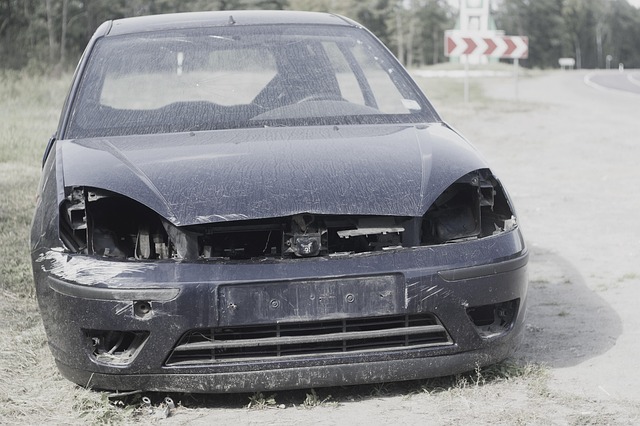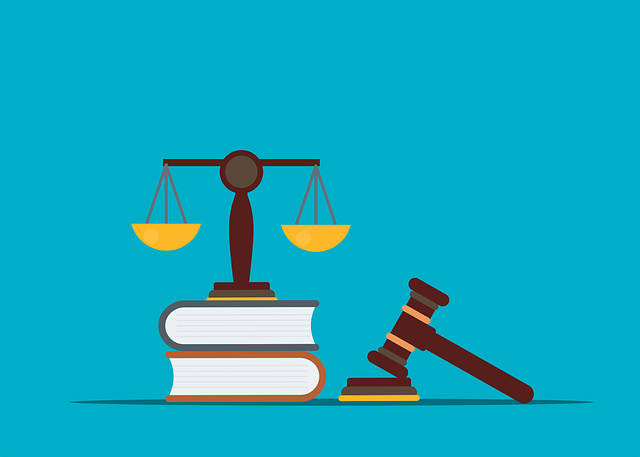Insurance Role in Accident Settlements Boca Raton

Insurance companies are vital intermediaries in accident settlement cases in Boca Raton, Florida, of…….
In the dynamic world of urban development, the concept of “accident settlement Boca Raton” has emerged as a strategic approach to addressing the complex challenges of modern cities. This article delves into the intricate details of this innovative concept, its global impact, and its role in shaping sustainable and resilient urban environments. By exploring various facets, from economic considerations to technological advancements, we aim to provide an in-depth understanding of how “accident settlement” can transform our cities for the better.
Definition: Accident settlement Boca Raton refers to a planned and strategic approach to urban development that prioritizes resilience, sustainability, and adaptability in response to unexpected events or accidents. It involves designing and implementing infrastructure, systems, and policies to minimize the impact of disasters, such as natural calamities, technological failures, or human-induced crises.
Core Components:
Risk Assessment: Identifying potential hazards and their likelihood is the first step. This includes analyzing geographical factors, historical data on disasters, and technological vulnerabilities.
Resilient Infrastructure: Developing robust physical structures like reinforced buildings, advanced transportation networks, and emergency response facilities to withstand adverse events.
Sustainable Systems: Integrating renewable energy sources, efficient waste management systems, and smart water conservation strategies to ensure long-term viability.
Adaptive Policies: Creating flexible legal frameworks that enable swift decision-making during emergencies, ensuring effective communication, and facilitating recovery efforts.
Historical Context: The concept has its roots in the increasing frequency and intensity of global disasters over recent decades. From catastrophic earthquakes to severe weather events, cities worldwide have been prompted to reevaluate their preparedness and resilience strategies. Boca Raton, a coastal city in Florida, USA, became a pioneer in this field by implementing comprehensive accident settlement measures that protected its residents and infrastructure from both natural and man-made hazards.
The influence of “accident settlement Boca Raton” extends far beyond its original context, as cities worldwide seek to emulate its proactive approach to disaster management. Key trends shaping this field include:
Urban Resilience: There is a growing recognition that cities are critical nodes in global networks, and their resilience is essential for maintaining social stability and economic prosperity.
Climate Change Adaptation: With climate change exacerbating extreme weather events, many regions are adopting “accident settlement” principles to build climate-resilient infrastructure.
Technological Integration: Advancements in technology, such as the Internet of Things (IoT) and artificial intelligence (AI), enable real-time monitoring and predictive analytics, enhancing disaster response capabilities.
Global Collaboration: International organizations and cities are sharing best practices and knowledge, fostering a collaborative environment to address global urban challenges.
The economic aspects of “accident settlement Boca Raton” are multifaceted, impacting various sectors within the city’s economy.
| Sector | Impact | Opportunities |
|---|---|---|
| Construction and Real Estate | Initial investment in resilient infrastructure may be significant but offers long-term stability and reduced post-disaster recovery costs. | Development of specialized, disaster-resistant housing and commercial spaces can attract investors and residents seeking secure environments. |
| Insurance and Risk Management | Accident settlement strategies can influence insurance rates, with cities implementing robust measures potentially enjoying lower risk assessments and more favorable terms. | Specialized insurance products catering to high-risk areas or industries can be developed, providing financial security for businesses and residents. |
| Tourism and Hospitality | Resilient infrastructure attracts tourists seeking safe destinations, boosting the local economy. | Cities can position themselves as preferred travel choices for adventure seekers interested in unique disaster-resilient experiences. |
Technological innovations play a pivotal role in enhancing the effectiveness of “accident settlement” strategies. Some significant advancements include:
Smart Sensors and IoT Devices: These enable real-time monitoring of environmental conditions, structural integrity, and emergency response coordination. For instance, sensors can detect early signs of flooding or structural failures, triggering automated alerts to evacuate areas or shut down critical infrastructure.
AI-Powered Disaster Prediction: Artificial intelligence algorithms analyze historical data, weather patterns, and geological data to predict disaster occurrences with increasing accuracy. This allows for proactive measures and better resource allocation.
Drone Technology: Drones are utilized for rapid assessment and surveillance during emergencies, providing aerial footage of affected areas, aiding in search and rescue operations, and supporting logistical planning.
Blockchain for Disaster Response: Blockchain technology ensures secure, transparent, and efficient data sharing during crises. It enables decentralized communication networks, ensuring critical information reaches the right authorities and aid organizations even in damaged infrastructure scenarios.
The development of “accident settlement” is significantly influenced by policy decisions and regulatory frameworks, which provide the necessary structure and guidelines:
National Disaster Preparedness Laws: Many countries have enacted legislation mandating specific measures for disaster preparedness, including risk assessment, emergency response planning, and resilient infrastructure development.
Local Zoning Regulations: Local governments implement zoning rules to ensure that new constructions meet resilience standards, such as building codes for structural integrity and accessibility requirements for emergency vehicles.
Public-Private Partnerships (PPPs): Collaborating with private entities can leverage resources and expertise, fostering innovative solutions. For instance, PPPs may develop and maintain resilient infrastructure in exchange for concession rights or revenue-sharing arrangements.
International Agreements: Treaties and pacts between nations facilitate knowledge sharing, joint disaster response planning, and resource allocation during large-scale crises.
Despite its numerous benefits, “accident settlement Boca Raton” faces several challenges and criticisms that require careful consideration:
Initial Cost: Implementing robust accident settlement measures can be expensive, often requiring substantial upfront investments from governments or private entities. Securing funding for such projects remains a challenge, especially in regions with limited financial resources.
Technological Infrastructure: Ensuring widespread access to advanced technologies and digital connectivity is essential but may pose challenges in underserved or remote areas, hindering the effectiveness of smart city initiatives.
Community Engagement: Gaining buy-in from residents and local businesses can be difficult. Educating communities about the benefits of accident settlement and involving them in decision-making processes are crucial for successful implementation.
Proposed Solutions: To address these issues, governments, urban planners, and community leaders can collaborate on the following strategies:
Tokyo’s transformation into a disaster-resilient metropolis is a testament to the successful implementation of “accident settlement” principles. Following the devastating 1923 Great Kanto Earthquake, the city rebuilt its infrastructure with an emphasis on seismic safety. Modernization efforts included reinforcing buildings, improving emergency response systems, and establishing advanced warning networks for tsunamis and earthquakes. These measures have significantly reduced casualties during subsequent disasters, showcasing the power of proactive urban planning.
Amsterdam’s unique challenge is its location in a low-lying area prone to flooding. The city has embraced “accident settlement” by investing heavily in innovative water management systems. These include advanced flood protection infrastructure, such as mobile dams and improved drainage networks, along with the restoration of natural wetlands that act as natural buffers against high water levels. Amsterdam’s comprehensive approach has made it a global leader in sustainable urban water management.
Singapore’s “Smart Nation” initiative incorporates accident settlement principles to enhance its resilience and livability. The city-state leverages technology, such as IoT sensors and AI analytics, for real-time monitoring of critical infrastructure. Their National Disaster Management Centre coordinates responses to various disasters, including tropical storms and fire hazards. Singapore’s comprehensive approach, combining robust infrastructure with advanced technology, sets a benchmark for modern urban resilience.
The future of “accident settlement Boca Raton” holds immense potential as cities continue to grapple with increasing global challenges. Several emerging trends and areas of focus include:
Sustainable Urban Planning: Integrating accident settlement principles into sustainable urban development plans, ensuring that new communities are designed with resilience at their core.
Cybersecurity for Critical Infrastructure: As smart city initiatives expand, safeguarding digital infrastructure and data becomes crucial to maintain effective disaster response systems.
Resilient Supply Chains: Cities can enhance their overall resilience by fostering robust local supply chains and diversifying resource sources to mitigate the impacts of global disruptions.
Community Resilience Training: Equipping residents with knowledge and skills to respond to emergencies, fostering a culture of preparedness that complements professional disaster management efforts.
“Accident settlement Boca Raton” represents a holistic approach to urban development, empowering cities to confront the challenges of an increasingly interconnected and vulnerable world. By understanding its core concepts, historical context, and global impact, we can appreciate the transformative potential of this strategy. As cities continue to navigate complex urban issues, adopting accident settlement principles becomes not just an option but a necessity for building resilient communities capable of withstanding unforeseen events.
Q: How does “accident settlement” differ from traditional disaster preparedness?
A: While traditional disaster preparedness focuses on immediate response and recovery, “accident settlement” takes a proactive approach by integrating resilience into urban planning and infrastructure development, ensuring long-term sustainability.
Q: What role do local governments play in implementing accident settlement measures?
A: Local governments are pivotal in enforcing zoning regulations, allocating resources, and coordinating with community organizations to ensure effective implementation of accident settlement strategies.
Q: Can “accident settlement” be cost-effective for smaller cities or towns?
A: Absolutely. Even smaller communities can benefit from accident settlement principles by prioritizing resilience in infrastructure development and adopting efficient resource management practices. While initial costs may vary, long-term savings in disaster recovery expenses can make it a financially prudent decision.
Q: How does technology contribute to the success of accident settlement initiatives?
A: Technology plays a pivotal role by providing real-time data, enabling predictive analytics, and facilitating efficient communication during emergencies. Smart city technologies, such as IoT sensors and AI, enhance disaster management capabilities and improve overall urban resilience.

Insurance companies are vital intermediaries in accident settlement cases in Boca Raton, Florida, of…….

In Boca Raton, navigating accident settlements requires understanding state laws and local court pro…….

Car crash settlements are vital for justice and financial stability in Boca Raton. Victims should pr…….

Accident settlement in Boca Raton involves understanding key steps, gathering crucial evidence, and…….

Rear-end collisions are common in Boca Raton, causing property damage and injuries. Victims should u…….

In Boca Raton, accident settlements are common after personal injuries from car collisions, slips, a…….

Victims of car crashes in Boca Raton have the right to seek accident settlement compensation for med…….

In Boca Raton, accident settlement offers compensate victims for medical bills, pain and suffering,…….

After a Boca Raton accident, understanding your legal rights and options for an accident settlement…….

Reaching an accident settlement in Boca Raton requires both parties to thoroughly understand their r…….